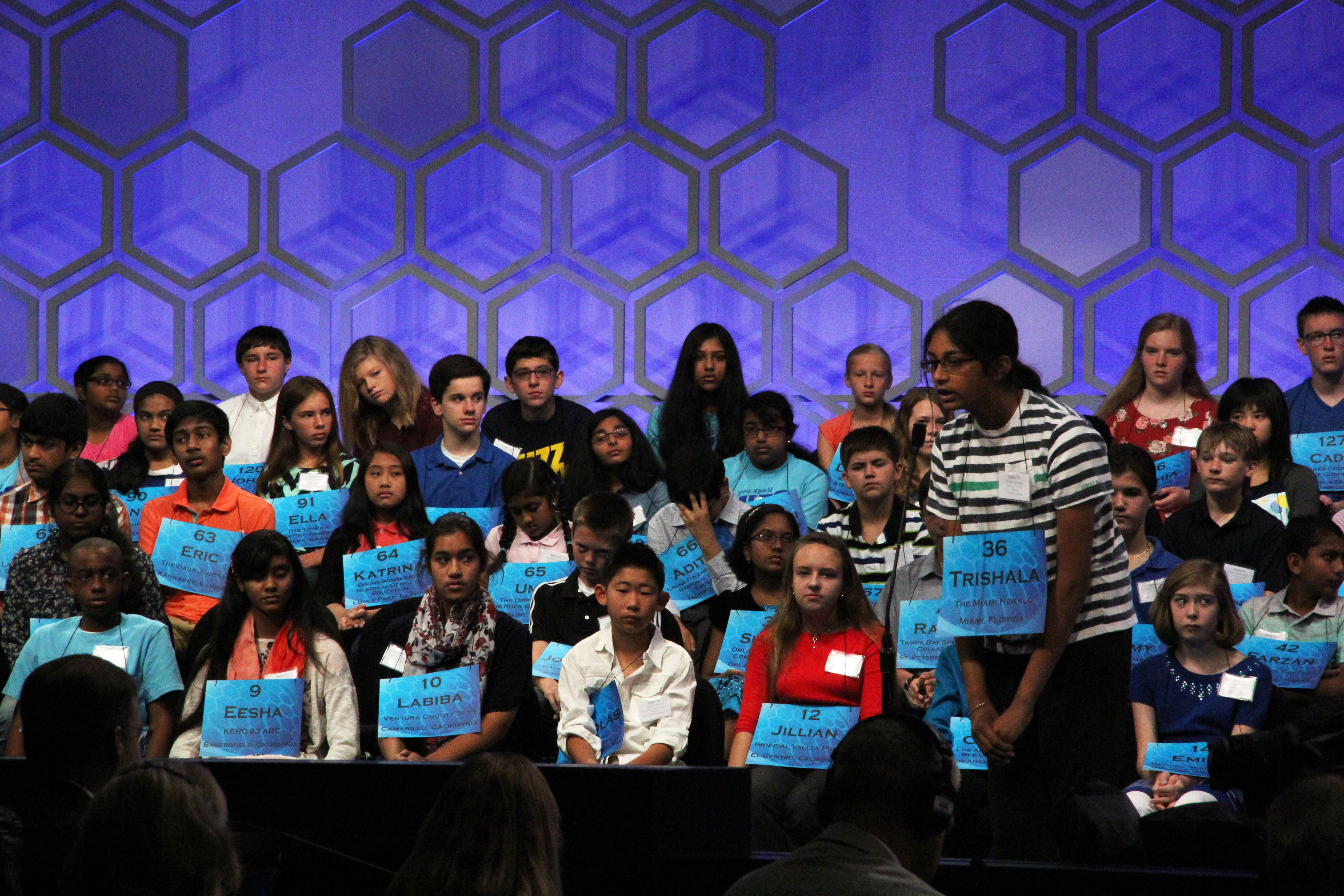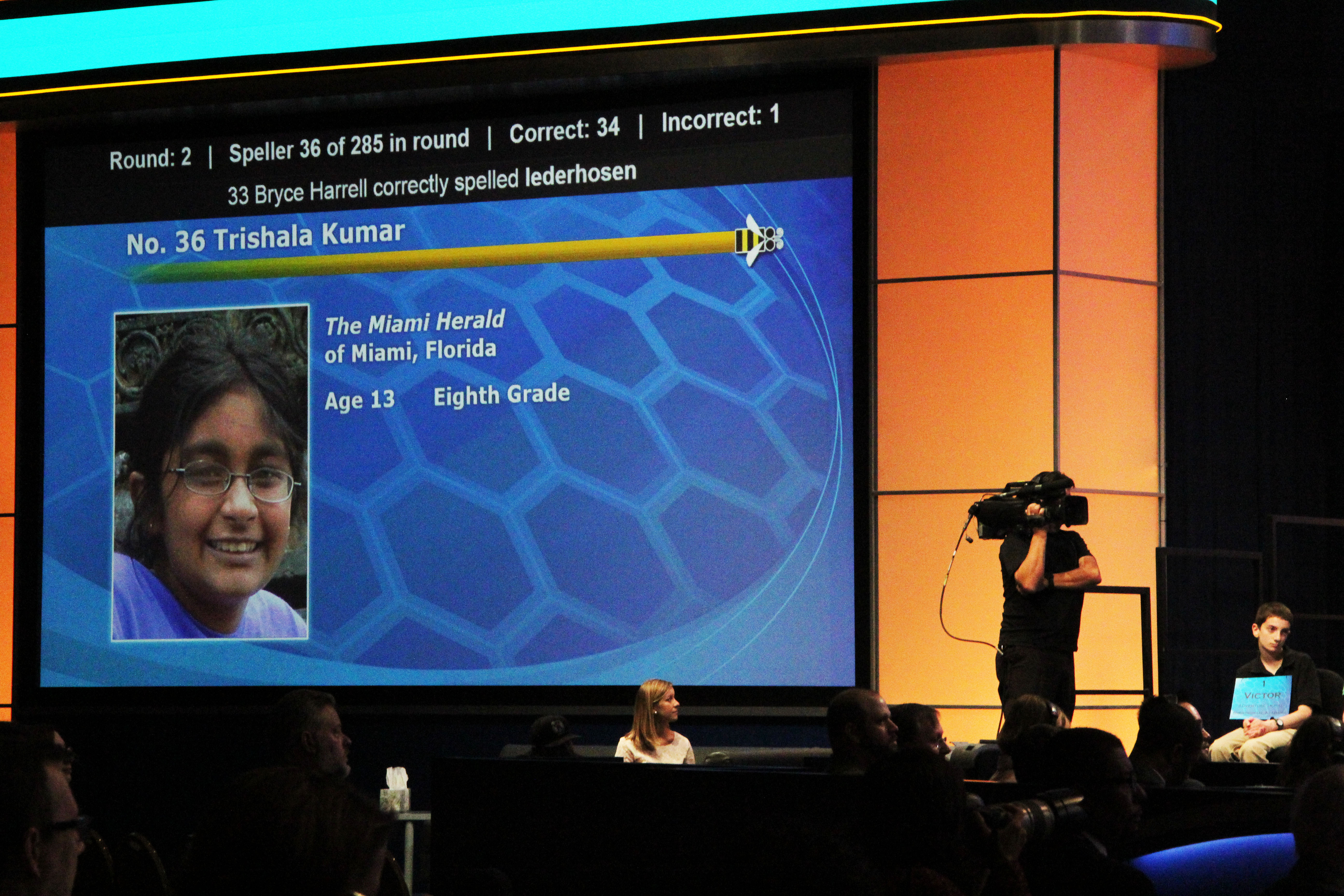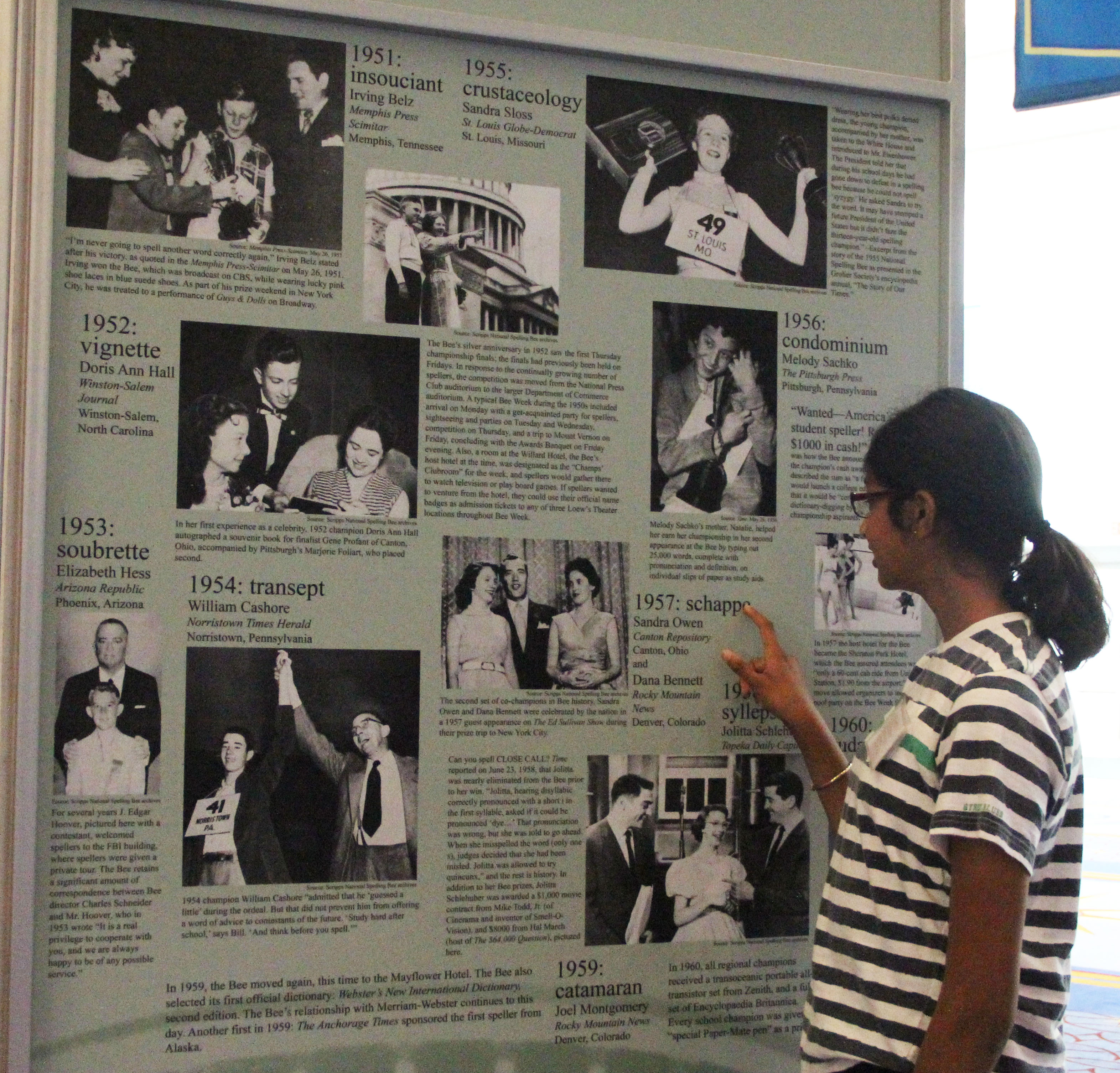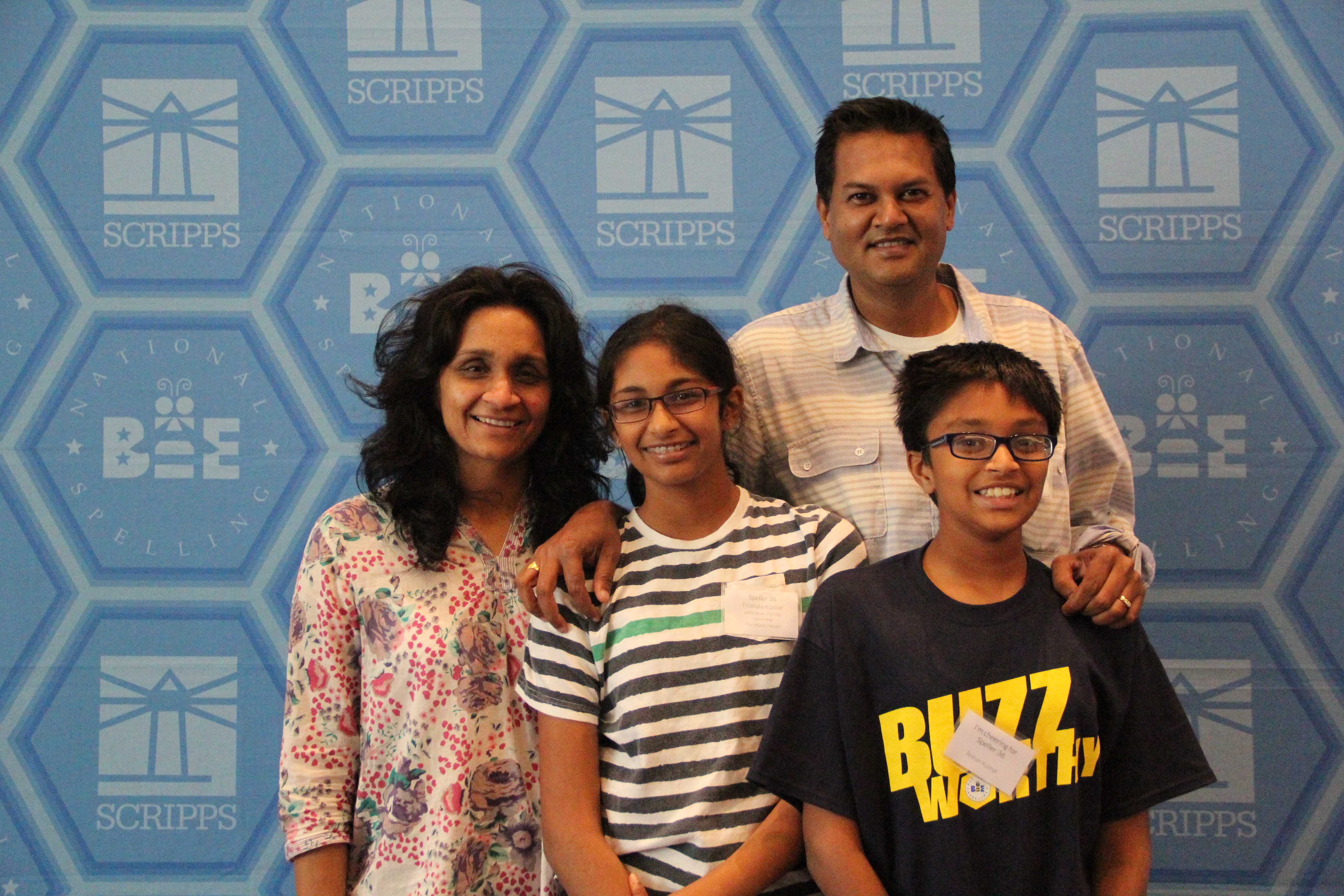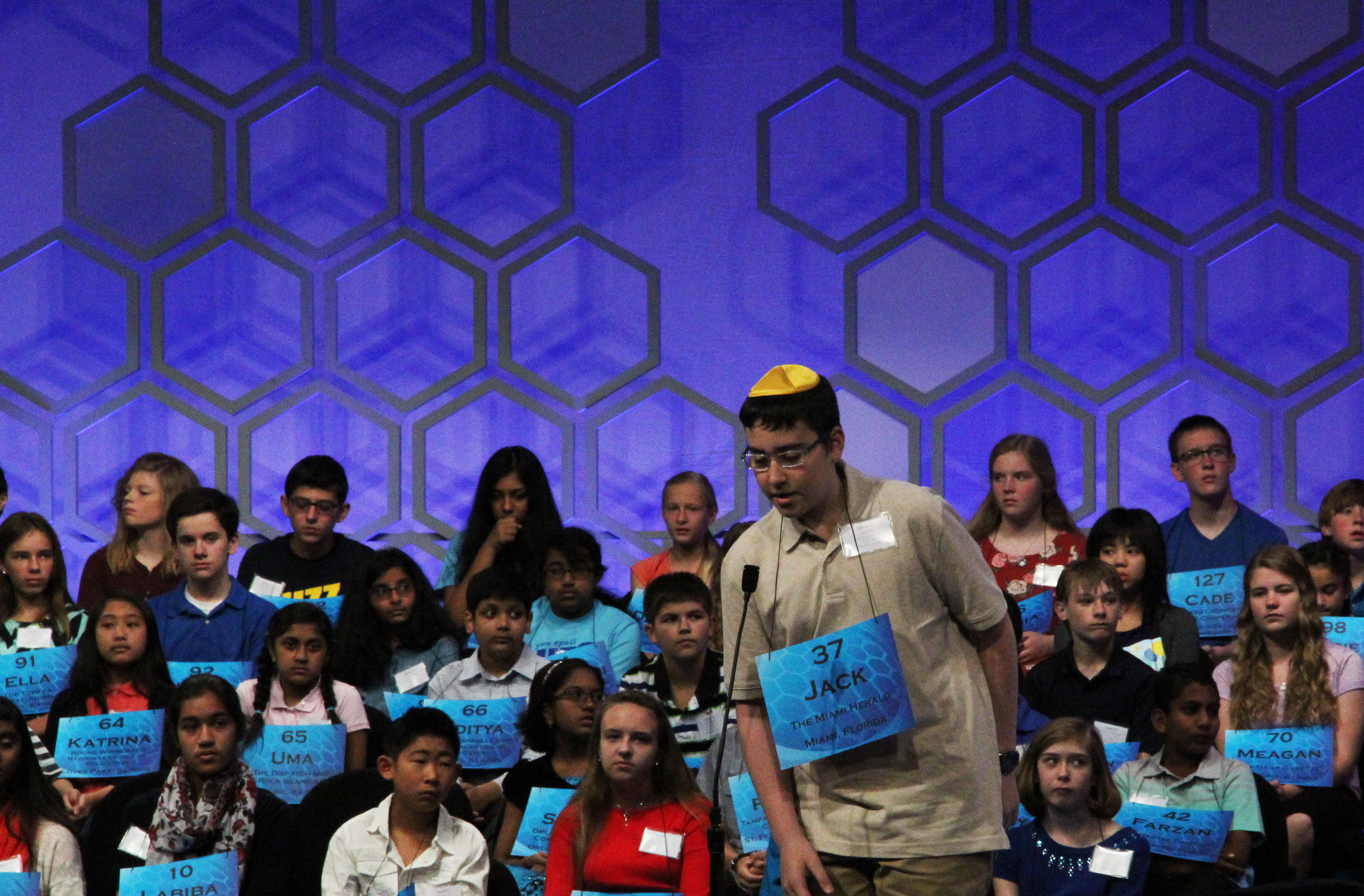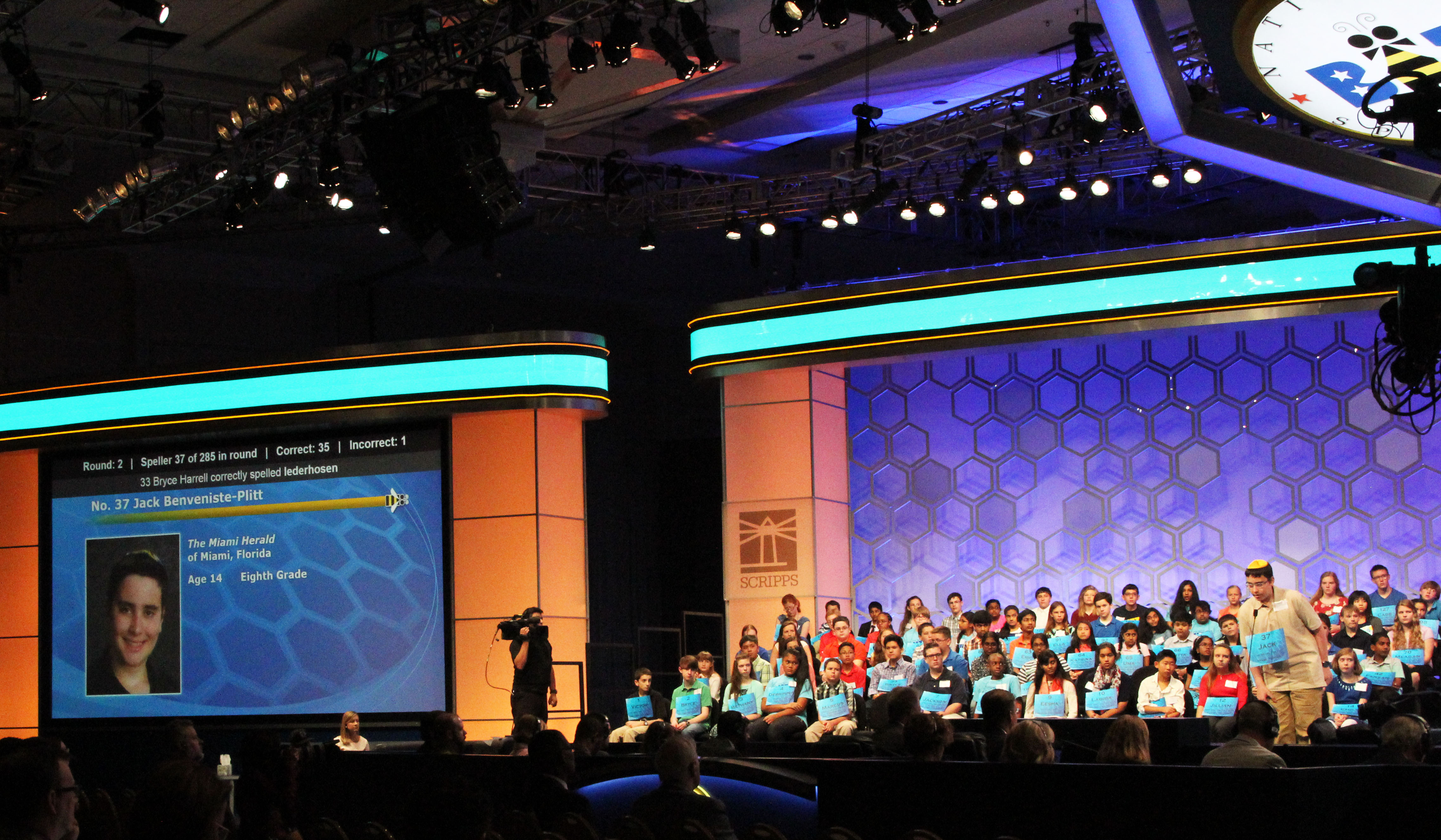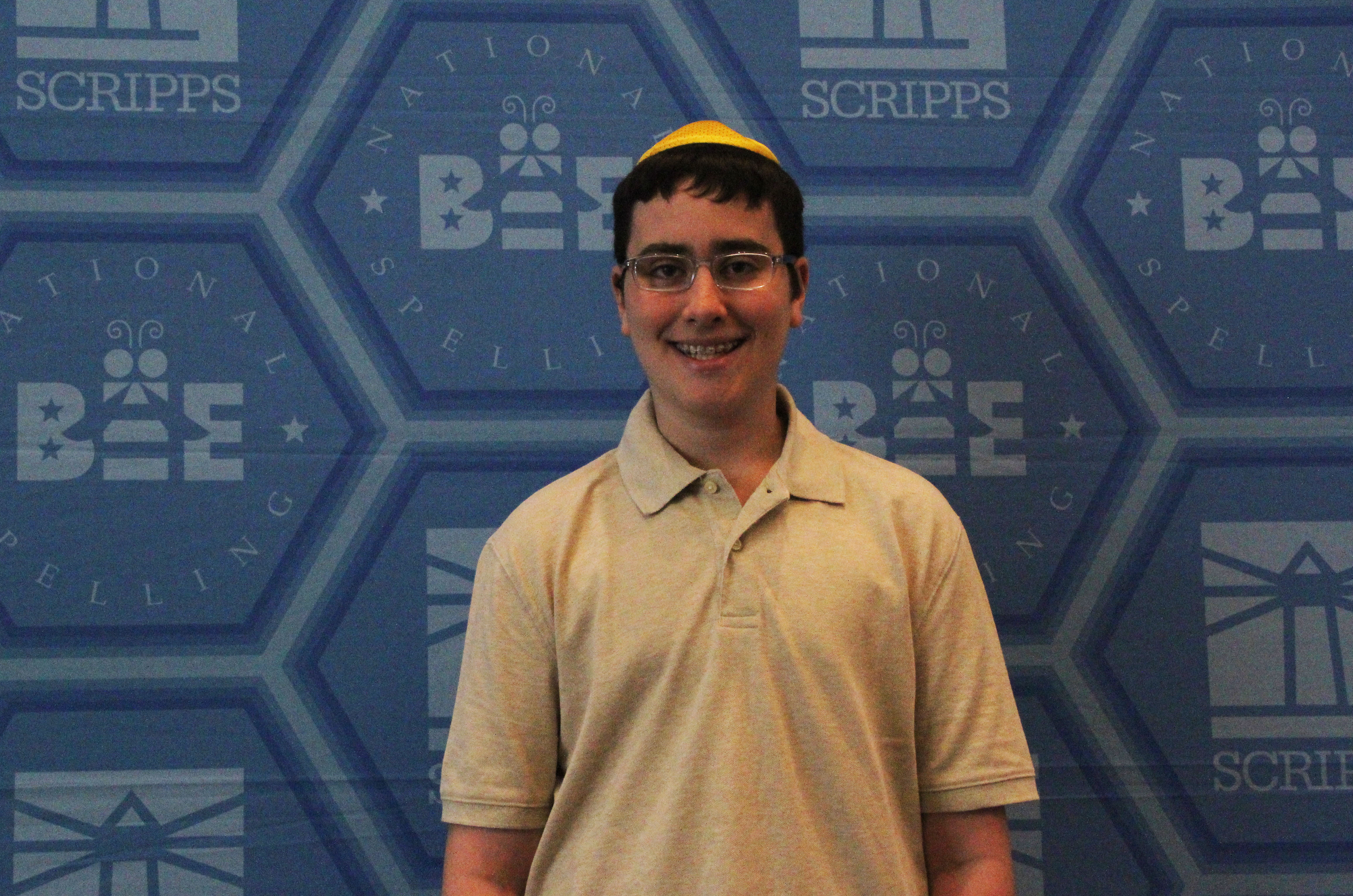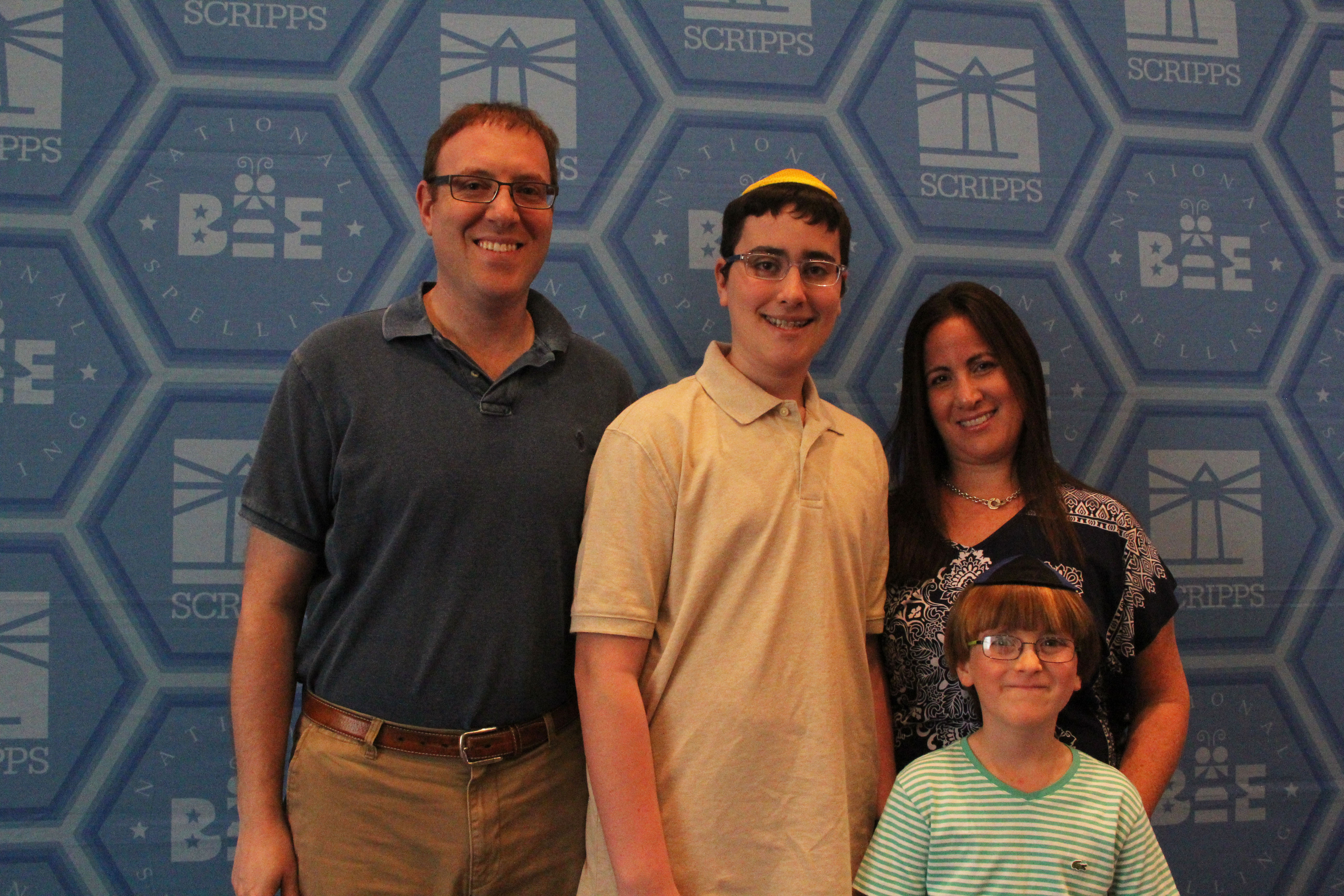WASHINGTON — E-T-Y-M-O-L-O-G-Y.
It’s fitting that the lead word for the stage portion of the 88th annual Scripps National Spelling Bee is defined by Merriam-Webster as the explanation of where a word came from. It’s also what top spellers from around the country requested before tackling some of the toughest words in the English language.
And most of them succeeded.
Two hundred and fourteen out of 285 spellers survived the first three rounds held Tuesday and Wednesday in Washington, D.C., including two South Florida eighth graders. Jack Benveniste-Plitt, 14, from Surfside, and Trishala Kumar, 13, from Miramar.
But their stellar runs stop here.
Only 49 of the top scorers will progress to the semifinals scheduled for Thursday, largely based upon their success on a written preliminary test that was “really hard,” according to both teens.
“That test was impossible!” Trishala said. “I hadn’t seen most of those words before [which meant] I had to break them down into roots.”
Jack said they were a complete surprise to him as well: “It was words that I’d never really seen before.”
Which is why when he heard what he’d be spelling on stage for rounds two and three – “herpetology” and “guenon” – he was thrilled.
He breezed through both, thanks in part to his zoological knowledge. The former, a branch of science dealing with reptiles and amphibians, put a clear smile on his face. He said he knew exactly what word he was dealing with: “I was kind of happy that I knew what it was.” The latter — “guenon’’ — was a type of African monkey known for its bold markings of white or bright colors.
Trishala’s confidence was steady, she said – her internal voice screaming, “Oh yeah! I know that!” when she heard her words. But she also made sure to take three breaths before starting to spell. The eighth grader at American Heritage School in Plantation said she studied the word list inside and out.
So “klompen,” a Dutch folk dance performed in wooden shoes, and “ribaldry,” vulgar speech or behavior, were two words she had in her back pocket.
Studying was a priority, she said, in the weeks leading up to the Bee. She studied word lists from 4 to 6 a.m. on weekdays, and then again before bedtime, with quizzes from her mom in-between. Trishala also spent Saturday afternoons working with a spelling coach to learn language rules and roots.
Jack, who attends Rabbi Alexander S. Gross Hebrew Academy in Miami Beach, said he studied for at least an hour each day, which meant he still had some time for guitar and football. He said he’s excited to get back to normal life.
Though both teens are disappointed they didn’t make it to the semifinals, they’re not disappointed in themselves. As Jack said, the bee is really an endurance test “to see who can last longer against the dictionary.”
“I’m really proud to have made it this far,” Jack said. “I know that I was as prepared as I could be.”
Both he and Trishala can claim that satisfaction – as well as a Microsoft Surface tablet and the knowledge that they did their very best. Unfortunately, neither will be eligible for next year’s bee due to age limitations.

